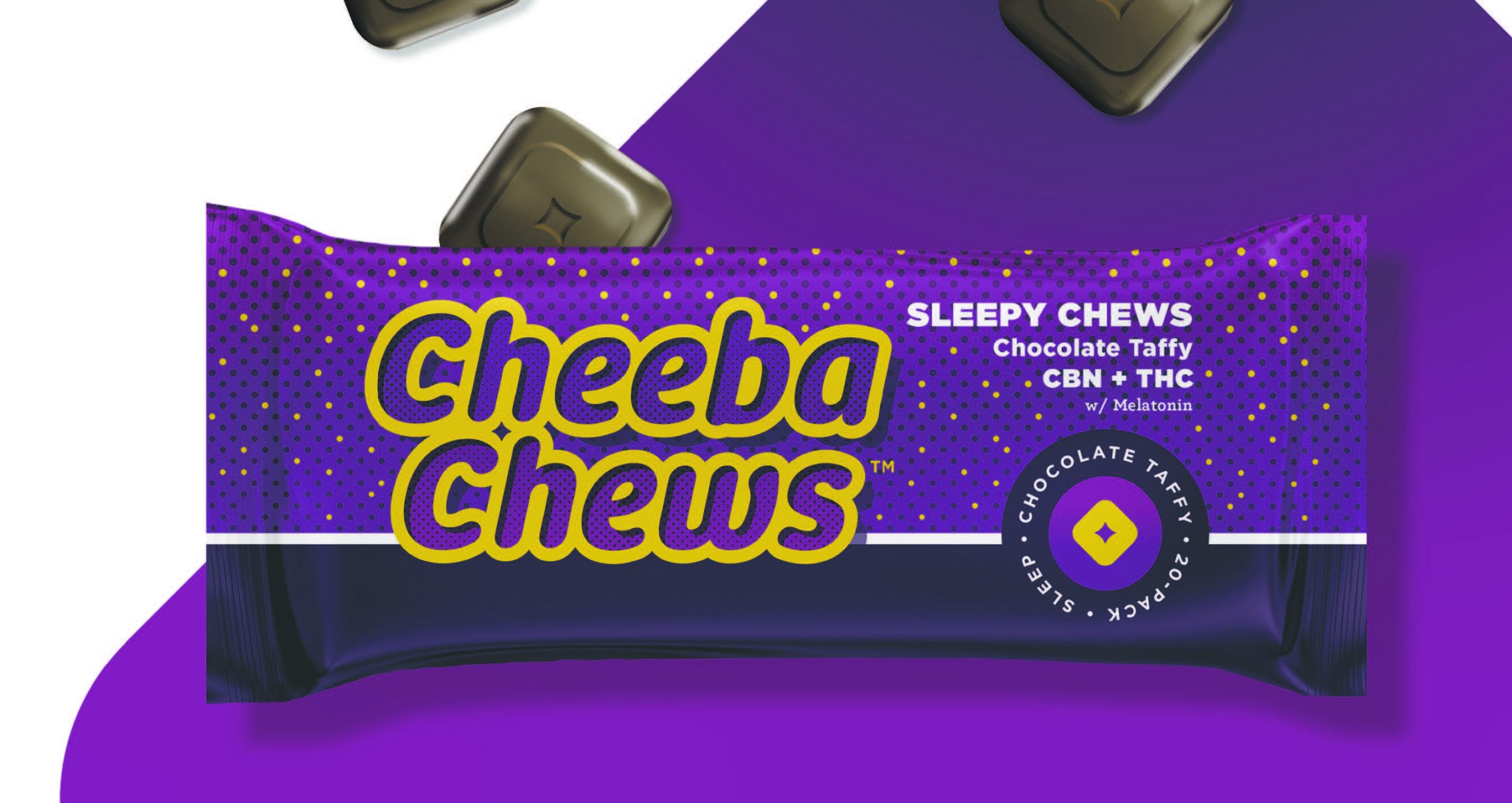When delving into the world of cannabis, it’s important to know the differences between your leafy greens. Marijuana is a botanical marvel that has been helping people manage physical and emotional pain from ancient civilizations to modern times. Before you start imagining tie-dye shirts and lava lamps, let’s take a step back to look at the therapeutic wonders of cannabinoids. Comparing CBD to THC is a bit like comparing the Beatles to the Rolling Stones – Both are legendary, but they bring their own unique qualities to the stage.
The Dynamic Duo: CBD and THC
First, let’s get a couple of basics out of the way. Cannabis plants are brimming with over 100 cannabinoids, but CBD (cannabidiol) and THC (tetrahydrocannabinol) are the A-listers. These two compounds are the most well-known and well-researched, each offering unique benefits. THC is the psychoactive component that gives users the “high” associated with marijuana, while CBD is non-psychoactive and provides therapeutic benefits without altering mental state. Understanding the differences between these two cannabinoids is essential for harnessing their full potential.
CBD: For the Calm Connoisseur
CBD is the more chill, laid-back option when it comes to marijuana. It’s excellent and brings the sense of relaxation often associated with marijuana but without the high. Why? Because CBD is non-psychoactive. In other words, it won’t make you see unicorns or think you can fly. Instead, it’s celebrated for its purely therapeutic effects, and it’s been making big waves in the health and wellness sector.
Pain Relief
Let’s face it. Pain is no fun! Studies suggest that CBD interacts with the endocannabinoid system (ECS)–a complex network of receptors involved in regulating pain, among other things. This interaction can help reduce inflammation and alleviate chronic pain, making it a great option for people suffering from conditions like arthritis or multiple sclerosis.
Perhaps even more intriguing is CBD’s potential role in managing pain without the risk of addiction that comes with opioids. As the world grapples with the opioid crisis, CBD emerges as a promising alternative to pain management. With fewer side effects and a lower risk of dependency, it’s no wonder that patients and healthcare professionals alike are turning their attention to this natural remedy.
Anxiety and Depression
Move over, antidepressants–CBD is here to help you find your zen. Research indicates CBD can have a significant impact on anxiety and depression. It interacts with serotonin receptors in the brain, effectively improving mood and reducing anxiety levels. Next time you’re feeling stressed, consider a few drops of CBD oil before bed instead of that paid meditation app.
In addition to its anti-anxiety and antidepressant effects, CBD is also being studied for its potential to improve sleep quality. Insomnia and disrupted sleep patterns are common among those suffering from anxiety and depression. CBD can help reset the human sleep cycle by promoting a sense of calm and relaxation, leading to more restful nights and brighter days.
Seizure Management
Here’s where CBD gets its superhero cape. One of the most compelling uses of CBD is its ability to manage seizures. The FDA even approved a CBD-based drug called Epidiolex for treating rare forms of epilepsy. This is a game-changer for many, providing relief where traditional medications have failed.
But that’s not all! CBD’s neuroprotective properties are also being explored for a wide range of neurological disorders. From Parkinson’s disease to Alzheimer’s, researchers are investigating how CBD might protect brain health and function. While the scientific evidence is still being gathered, the potential for CBD to improve the quality of life for those with neurological conditions is undeniably exciting.
THC: For the Euphoric Enthusiast
While CBD takes the spotlight for its calming effects, THC is the rock star when it comes to euphoria. THC binds directly to the CB1 receptors in the brain, leading to the classic psychoactive effects associated with marijuana. But THC is much more than just a way to unwind and enjoy some laughs (and food). It has significant therapeutic benefits that make it invaluable in the medical field.
Pain Relief
THC is highly effective in managing pain, particularly neuropathic pain, which is difficult to treat with conventional medicine. It acts on the central nervous system to alter the perception of pain, making it a powerful option for those with chronic pain conditions such as fibromyalgia or nerve damage. Unlike CBD, THC can provide a more immediate and pronounced relief from pain, which is why it’s often preferred for severe pain management.
Appetite Stimulation
One of the most well-documented and perhaps cliche effects of THC is its ability to stimulate appetite, often referred to as “the munchies.” This can be a real lifesaver for patients undergoing treatments like chemotherapy, which often leads to severe nausea and appetite loss. By stimulating the appetite, THC helps patients maintain a healthy weight and intake essential nutrients, contributing to their overall well-being during difficult treatments.
Along with more serious medical issues like undergoing chemotherapy, there is also research that the appetite stimulation associated with THC can be beneficial for those going through withdrawal from drugs and alcohol. For example, if a long-time alcohol user is trying to quit, they can often face stomach problems. THC is there for those who need a little help filling up their bellies.
Mental Health
THC’s effects on mental health are complex and depend heavily on dosage and individual tolerance. In low to moderate doses, THC can reduce symptoms of anxiety and depression, promote relaxation, and improve mood. However, higher doses can sometimes exacerbate these conditions, so careful management and consultation with a healthcare provider are typically recommended. For some, THC can be a powerful ally in managing mental health conditions when used responsibly; for others, it may just add to any feelings of anxiety.
The Synergy of CBD and THC
When CBD and THC are combined, they create a phenomenon known as the entourage effect. This synergy enhances the therapeutic effects of both cannabinoids, providing a more comprehensive approach to treatment. For instance, CBD can mitigate some of the psychoactive effects of THC, making it more tolerable for those sensitive to THC. Together, they offer a balanced effect that maximizes pain relief, reduces inflammation, and promotes overall wellness without overwhelming psychoactivity.
Choose Your Fighter
For Pain
Both CBD and THC are effective in pain management, but they work best for different types of pain. CBD is excellent for inflammatory and chronic pain, making it ideal for conditions like arthritis and multiple sclerosis. THC, on the other hand, is better suited for acute and neuropathic pain, providing more immediate and potent relief. Depending on the nature and severity of your pain, one might be more suitable than the other, or a combination of both might offer the best results.
For Mental Health
When it comes to mental health, CBD is often the preferred choice due to its calming and anti-anxiety properties without the risk of psychoactive effects. However, for those who can tolerate THC, it can offer additional benefits in mood enhancement and relaxation. The key is finding the right balance and dosage that works for you, often under the guidance of a healthcare professional.
For Appetite and Nausea
THC is the undisputed champion in stimulating appetite and reducing nausea, making it the go-to for patients undergoing treatments like chemotherapy. CBD can also help with nausea but is less effective at stimulating appetite. For those needing to manage both, a combination of CBD and THC can provide comprehensive relief without the intense high of THC alone.
The Future of Therapeutic Cannabis
Both CBD and THC offer unique and powerful therapeutic benefits. CBD shines in its ability to provide calm and relief without psychoactive effects, making it a versatile option for many health issues. THC, with its euphoric and appetite-stimulating properties, is invaluable for pain and symptom management in severe conditions. Together, they form a dynamic duo that can address various health concerns. As research continues to unlock the potential of these cannabinoids, the future of therapeutic cannabis looks bright, offering new hope and healing for those in need.













